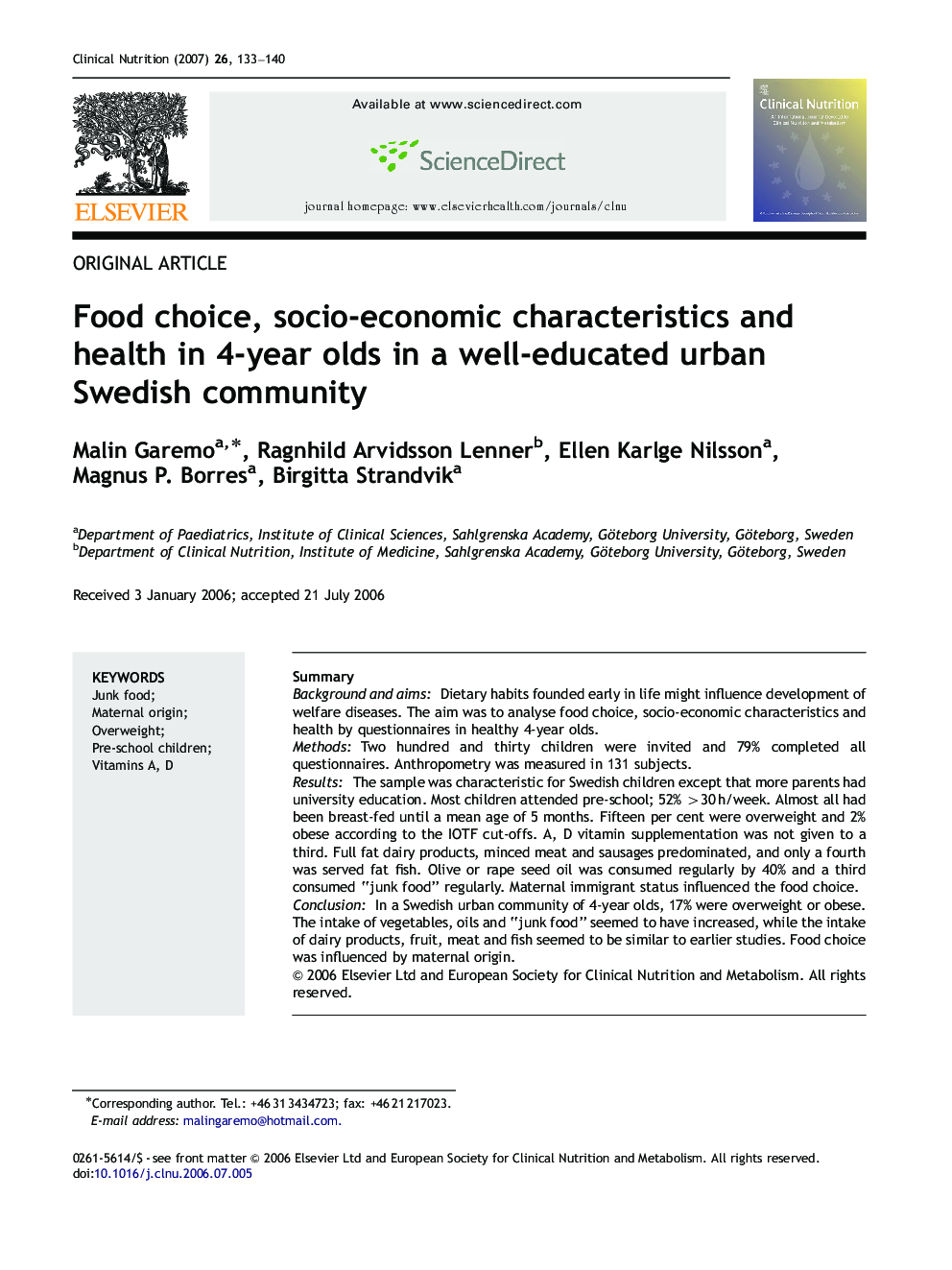| Article ID | Journal | Published Year | Pages | File Type |
|---|---|---|---|---|
| 2684491 | Clinical Nutrition | 2007 | 8 Pages |
SummaryBackground and aimsDietary habits founded early in life might influence development of welfare diseases. The aim was to analyse food choice, socio-economic characteristics and health by questionnaires in healthy 4-year olds.MethodsTwo hundred and thirty children were invited and 79% completed all questionnaires. Anthropometry was measured in 131 subjects.ResultsThe sample was characteristic for Swedish children except that more parents had university education. Most children attended pre-school; 52% >30 h/week. Almost all had been breast-fed until a mean age of 5 months. Fifteen per cent were overweight and 2% obese according to the IOTF cut-offs. A, D vitamin supplementation was not given to a third. Full fat dairy products, minced meat and sausages predominated, and only a fourth was served fat fish. Olive or rape seed oil was consumed regularly by 40% and a third consumed “junk food” regularly. Maternal immigrant status influenced the food choice.ConclusionIn a Swedish urban community of 4-year olds, 17% were overweight or obese. The intake of vegetables, oils and “junk food” seemed to have increased, while the intake of dairy products, fruit, meat and fish seemed to be similar to earlier studies. Food choice was influenced by maternal origin.
